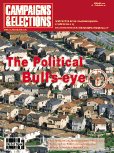More Assorted Stuff
The first half of this week is mostly about getting a hundred things done in order to clear the decks for my trip to New York later in the week and over the weekend, for the ASJA conference. So you'll have to pardon me if yesterday, today and tomorrow are light and quick.
Prayer and Healing. This Washington Post piece looks at the possible links between prayer and healing. It caught my eye because (of course) I have an interest in the subject, but also because I recently had the good fortune to meet Dr. Joan Fox, a Cleveland Clinic physician who's studying the same subject. She made local headlines when she was tapped to head the hospital system's alternative medicine efforts, but she no longer has those duties. Now, she investigates medical topics which interest her, including the medical effectiveness of prayer and of reiki therapy. I'm looking forward to staying in touch with her and learning what she finds.
Ira Glass Moves to NY & TV. I suppose I've always been of two minds about Ira Glass and his NPR program This American Life. At its best, it can be marvelously good storytelling. But I think Glass and his colleagues can also be a tad too precious and PC for my tastes. In any event, I did like how he stayed with his base in Chicago, after beginning the program from the local NPR affiliate there, WBEZ. But no longer. New York Magazine says he's moving his show to TV and his staff to New York. I'll be surprised if the show works nearly as well on television, because he's so deeply grounded in sound, and the audience is so used to hearing rather than seeing the program. It'll just be a completely different experience, I suppose, almost like starting anew for him. But I hope to check it out sometime.
And Speaking of Chicago and New York...I recently came across this interesting site, which lists the 15 most impressive urban skylines in the world. I made a mental note to try to see all 15 cities before my time is up, because thus far I've only seen four of 15--NY, Chicago, Seattle and Toronto. I'm not surprised that Pittsburgh made the list as an honorary mention. A couple of weeks ago, Jule and I got in a get-away weekend to the Burgh, which I always find intoxicating. But for the first time, I got up to Mount Washington, the commanding heights across the river, from which the skyline is at its most impressive. It's magical. While Cleveland and Pittsburgh are of similar size--both in population and the scale of their downtowns--the Steel City's natural setting is just so much more impressive. And the biggest difference of all is this: the middle class lives downtown in Pittsburgh. I hope Cleveland Mayor Frank Jackson's dream of attracting 25,000 people to the downtown district eventually bears fruit. But we have quite a ways to go before catching up.











